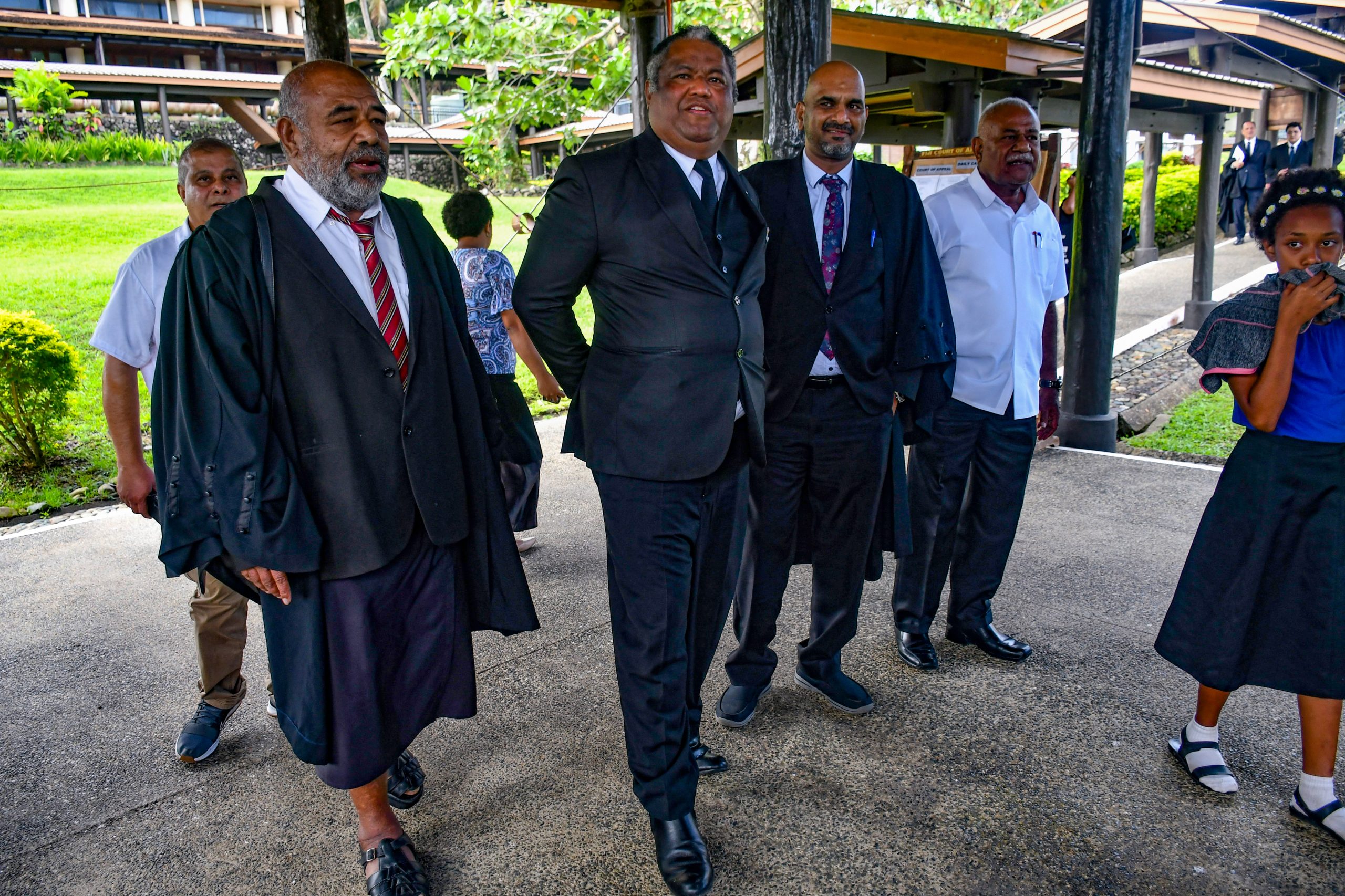THE Supreme Court of Fiji has recognised the 2013 Constitution as the legally effective constitution of Fiji, but not the “unamenable” amendment provisions.
It said the amendment provisions of the Constitution rendered it virtually unamendable by requiring three-quarter majorities in Parliament and of all registered voters at a subsequent referendum, “voting or not.”
This mechanism effectively disempowered the people as a whole from effecting democratic change, it ruled.
The judgment delivered by Chief Justice Salesi Temo, comes after Cabinet sought the court’s opinion on the interpretation and application of Sections 159 and 160 of the 2013 Constitution.
Justice Temo said considering the time elapsed since its inception, the numerous laws enacted under it, and the three popular elections held during its tenure, the 2013 Constitution remained valid.
“As a matter of common law, the court holds that it should recognise the 2013 Constitution as the legally effective constitution of Fiji,” Justice Temo said.
“The court takes judicial notice that individuals and businesses will have organised their affairs and made their arrangements in reliance upon it.”
He stated not everyone admired or respected the 2013 Constitution.
“However, it was imposed on the people, not chosen by them. There is, therefore, a democratic deficit.
“Our recognition of the Constitution is, therefore, qualified.”
“We will recognise them as legally effective when interpreted to reduce the majority requirements to workable levels – two thirds of all members of Parliament, coupled with a simple majority of electors voting at a referendum.
“In this way, we have recognised the basic structure of the amendment provisions, requiring approval from both Members of Parliament and voters, and have remedially interpreted them only to the extent necessary to make democratic control possible.”
He said in so doing, they do not accept the contention of the State that the Constitution could be amended simply by simple majority of the Parliament.
“It is our view that the qualified recognition we give to the 2013 Constitution empowers the people of Fiji to undertake such changes as they think appropriate — making change feasible, but not making it so easy that it can too readily be affected by one interest group or another.”
Justice Temo said in the interest of stability and continuity, they have recognised section 159 (2) (a) of the Constitution, that made chapter 10 relating to immunities not subject to amendment.
“We also recognise section 159 (2) (b) which preserve the transitional provisions in chapter 12.
“We do not recognise section 159 (2)(c), which prevents amendments to the amendments provisions themselves.”

